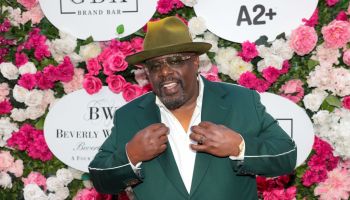They stood in line. Hands linked in hands as they stood firmly fighting for what they believed should be rightfully theirs.
No rubber bullets, nor slurs, nor the cold forceful blast of a fire hose could disperse their loyalty to acquiring the intangible right that was equality.
Some of them didn’t live to see the fruits of their tireless labor come to fruition, but they weren’t doing it for them. They were fighting for us.
The movement hustled on though as casualties and stories of defeat, as well as stories of triumph, would shape the tomorrows that would allow each and every one of us to enjoy the limited racial ease we stride with today.
But now we’re stagnant.
Now we’re rapping along to songs that glorify the objectification of women in manners that reflect what the hateful era did to our black ancestors.
Now we idolize the Nicki Minajs and the Rihannas, yet vehemently turn our backs to the celebration of words spoken by black women with a little more bass and a lot more purpose.
Just last week, in the height of what should be not just the celebration, but the remembrance of the black struggle, Lil Wayne rapped the lyrics “beat that pussy up like Emmett Till.”
The lyrics didn’t move many. They brushed it off as “just a play on words with rap” until the deceased’s family members spoke up.
“The Ku Klux Klan would be very proud of Lil Wayne,” they said.
And it got those of us who know the story of Emmett’s untimely and gruesome demise thinking, “Do we all know the story of Emmett? Do we all know our history?”
Once upon a time, hip-hop was an educator.
Thanks to hip-hop, inner city kids who wouldn’t crack the spine of a history book learned their own history through lyrics that flowed with purpose, with words that reminded us of the goals of historical black figures such as Malcolm X and Martin Luther King Jr. Many young people first learned about the philosophies of these black leaders when they popped in tracks like Keith La Blanc’s “Malcolm X – No Sell Out” and woke up. They popped in the VHS of Do The Right Thing and woke up. They tuned in, paid attention and woke up.
Now we’re sleeping again.
We celebrate gimmicks and fail to educate one another. We fail to celebrate where we came from and reflect on the struggles of our past. We fail to draw lessons from the struggles that show us the path to further progressing on the road to equality.
We fail to follow the blueprint, because we’re too busy praising The Blueprint.
We fail. We fail and put the blame and the weight of those failures on others and expect those who prosper to carry an entire race through.
Black History Month is a celebration of achievements by black Americans and a time to recognize the central role of African Americans in U.S. history, but it is also a time to realize that we have to take our history a lot more seriously. We have to cut out the chase to the top of the “giving the least phucks” totem and focus on what we are leaving behind in that empty race.
Our perception of what matters is warped. For what does it count how many followers you have or how many likes you get, if you continue to be a portal of minimal change?
Yes, blacks are represented in government, literature, film, athletics.
Yes, our president is black, but the struggle doesn’t end there.
Let’s sensitize ourselves to our own history. Let’s not be afraid to call out others when they are defaming legacy, and let’s decide that we want our past as a race to serve not as a reminder of why we should give up, but instead as a reminder of the things we need to motivate us to move forward and want more.
The civil rights fight isn’t really over, it just adapted a subtle existence, and was drowned out by all the big booties and bad bitches blaring on the radios. The movement is begging to be remembered this Black History Month and forward.
Failing inner-city public schools, institutionalized poverty, healthcare disparities, job discrimination, racial profiling; It’s all still here masquerading with a new face.
The tactics may not be the same, but our Emmett Tills and Trayvon Martins still need justice, not insensitive rap lyrics.
We can’t continue to wash away the triumphs of our past.
Rachel is the Style Editor for GlobalGrind.com, proud graduate of a SUNY school, accessories obsessed and as sarcastic as they come. Follow her on Twitter for random daily ramblings @MiissHislop
















